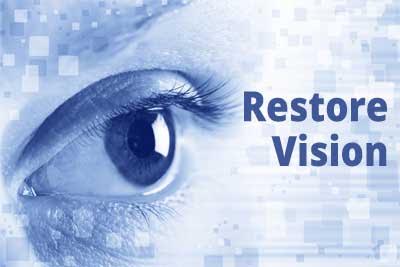- Home
- Editorial
- News
- Practice Guidelines
- Anesthesiology Guidelines
- Cancer Guidelines
- Cardiac Sciences Guidelines
- Critical Care Guidelines
- Dentistry Guidelines
- Dermatology Guidelines
- Diabetes and Endo Guidelines
- Diagnostics Guidelines
- ENT Guidelines
- Featured Practice Guidelines
- Gastroenterology Guidelines
- Geriatrics Guidelines
- Medicine Guidelines
- Nephrology Guidelines
- Neurosciences Guidelines
- Obs and Gynae Guidelines
- Ophthalmology Guidelines
- Orthopaedics Guidelines
- Paediatrics Guidelines
- Psychiatry Guidelines
- Pulmonology Guidelines
- Radiology Guidelines
- Surgery Guidelines
- Urology Guidelines
Nano eye implant may restore vision

Los Angeles : Scientists have developed a new eye implant that may help restore vision in millions of people worldwide.
According to researchers from University of California, San Diego, and the US-based startup Nano vision Bio sciences, the new prosthesis relies on two groundbreaking technologies. One, the implant has been made with the help of arrays of silicon nano wires that sense light and electrically stimulate the retina. The nanowires give the prosthesis higher resolution than anything achieved by other devices closer to the dense spacing of photo receptors in the human retina.
The other breakthrough, they said, is a wireless device that can transmit power and data to the nanowires over the same wireless link at record speed and energy efficiency.
The technology could help tens of millions of people worldwide suffering from neuro degenerative diseases that affect eyesight, including macular degeneration, retinitis pigmentosa and loss of vision due to diabetes. The performance of current retinal prostheses to help the blind regain functional vision is still limited.
According to the researchers, one of the main differences between their prototype and existing retinal prostheses is that the new system does not require a vision sensor outside of the eye to capture a visual scene and then transform it into alternating signals to sequentially stimulate retinal neurons.

Disclaimer: This site is primarily intended for healthcare professionals. Any content/information on this website does not replace the advice of medical and/or health professionals and should not be construed as medical/diagnostic advice/endorsement or prescription. Use of this site is subject to our terms of use, privacy policy, advertisement policy. © 2020 Minerva Medical Treatment Pvt Ltd